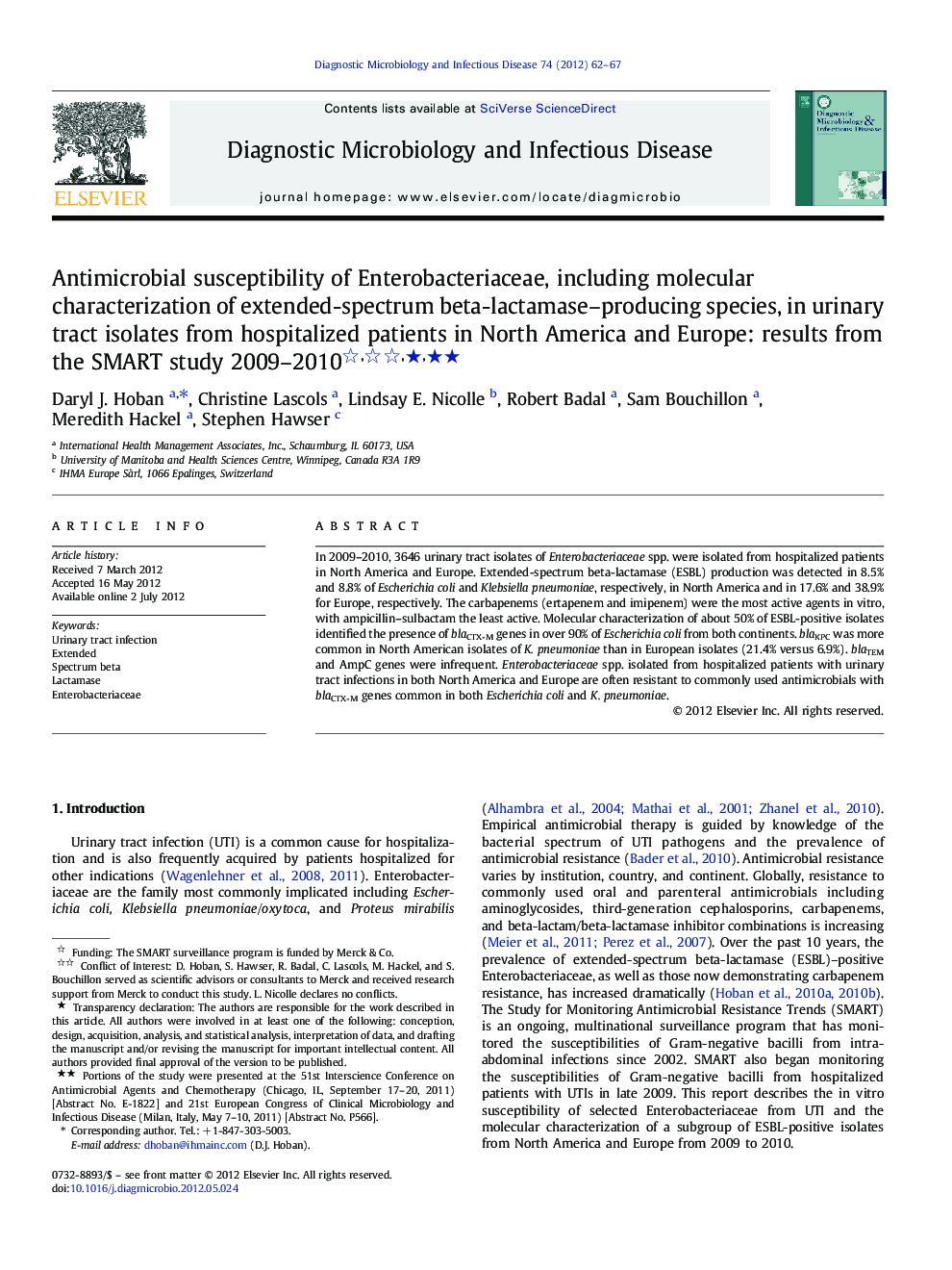| Article ID | Journal | Published Year | Pages | File Type |
|---|---|---|---|---|
| 6116056 | Diagnostic Microbiology and Infectious Disease | 2012 | 6 Pages |
Abstract
In 2009-2010, 3646 urinary tract isolates of Enterobacteriaceae spp. were isolated from hospitalized patients in North America and Europe. Extended-spectrum beta-lactamase (ESBL) production was detected in 8.5% and 8.8% of Escherichia coli and Klebsiella pneumoniae, respectively, in North America and in 17.6% and 38.9% for Europe, respectively. The carbapenems (ertapenem and imipenem) were the most active agents in vitro, with ampicillin-sulbactam the least active. Molecular characterization of about 50% of ESBL-positive isolates identified the presence of blaCTX-M genes in over 90% of Escherichia coli from both continents. blaKPC was more common in North American isolates of K. pneumoniae than in European isolates (21.4% versus 6.9%). blaTEM and AmpC genes were infrequent. Enterobacteriaceae spp. isolated from hospitalized patients with urinary tract infections in both North America and Europe are often resistant to commonly used antimicrobials with blaCTX-M genes common in both Escherichia coli and K. pneumoniae.
Related Topics
Life Sciences
Immunology and Microbiology
Applied Microbiology and Biotechnology
Authors
Daryl J. Hoban, Christine Lascols, Lindsay E. Nicolle, Robert Badal, Sam Bouchillon, Meredith Hackel, Stephen Hawser,
